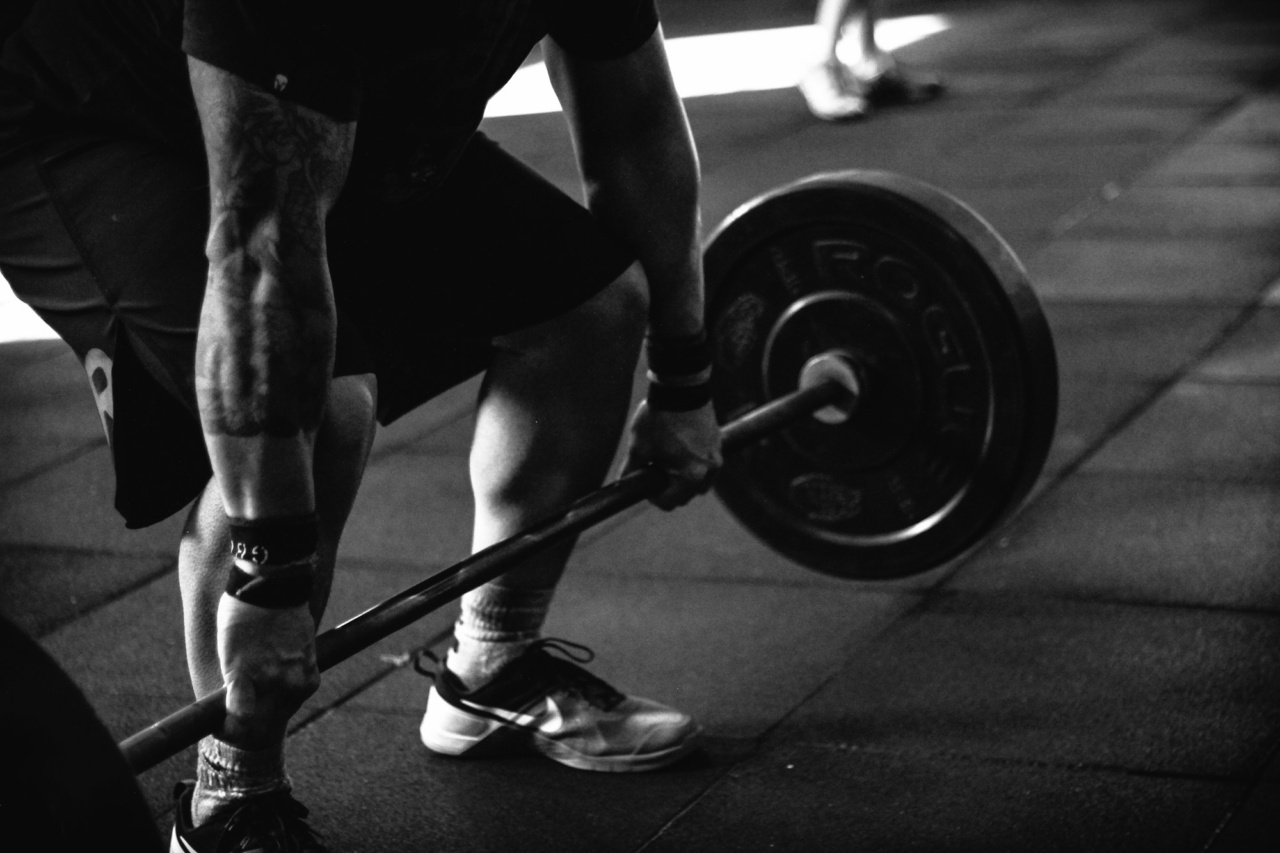As we age, maintaining muscle strength becomes increasingly important for overall health and mobility.
By the time we reach 60, our bodies naturally start to experience a decline in muscle mass and strength, which can lead to various health issues and functional limitations. However, there is hope. Research has shown that harnessing the power of certain hormones can significantly boost muscle strength, even in individuals over the age of 60.
In this article, we will explore the importance of hormone balance and the various ways you can optimize it to enhance your muscle strength later in life.
The Role of Hormones in Muscle Strength
Hormones are chemical messengers that regulate essential bodily functions, including muscle growth and repair. As we age, the production and balance of certain hormones start to decline, leading to muscle loss and decreased strength.
Here are some key hormones that play a significant role in muscle strength:.
1. Testosterone
Testosterone is a hormone commonly associated with masculinity, but it is essential for both men and women. It plays a crucial role in building and maintaining muscle mass and strength.
However, testosterone levels naturally decline with age, especially in men. This decline can result in reduced muscle mass and strength.
2. Growth Hormone (GH)
Growth hormone is responsible for promoting tissue growth and repair. It stimulates the production of protein and collagen, which are vital for muscle development and strength.
Like testosterone, growth hormone production decreases with age, leading to muscle loss.
3. Insulin-Like Growth Factor 1 (IGF-1)
IGF-1 is produced primarily in the liver and is influenced by growth hormone. It supports muscle cell growth and prevents muscle breakdown. Low levels of IGF-1 can contribute to muscle weakness and age-related muscle loss.
Optimizing Hormonal Balance for Muscle Strength
Although hormone levels naturally decline with age, there are several lifestyle changes that can help optimize hormonal balance and boost muscle strength. Here are some strategies to consider:.
1. Regular Exercise
Engaging in regular physical activity, including resistance training and aerobic exercises, can stimulate hormone production and help maintain muscle mass and strength.
Strength training exercises specifically target muscles, promoting their growth and maintenance.
2. Balanced Diet
A well-balanced diet that includes adequate protein, healthy fats, and essential nutrients is crucial for hormonal balance. Protein is especially important for muscle growth and repair.
Include sources of lean protein such as fish, poultry, beans, and tofu in your meals.
3. Sleep Quality
Getting quality sleep is essential for overall health, including hormonal balance. Aim for 7-8 hours of uninterrupted sleep each night. Poor sleep can disrupt hormone production and lead to muscle loss and reduced strength.
4. Stress Management
High levels of chronic stress can negatively impact hormone production and balance. Find healthy ways to manage stress, such as meditation, deep breathing exercises, or engaging in hobbies you enjoy.
Regular relaxation can promote optimal hormonal function.
5. Hormone Replacement Therapy
If you are experiencing significant muscle loss and have low hormone levels, hormone replacement therapy (HRT) may be an option. Consult with a healthcare professional to discuss the potential benefits and risks associated with HRT.
6. Maintain a Healthy Weight
Excess body fat can interfere with hormone production and balance. Aim to maintain a healthy weight through a combination of regular exercise and a nutritious diet. Losing excess weight can positively impact hormone levels and muscle strength.
7. Maintain Muscle Activation
Being sedentary for prolonged periods can lead to muscle weakness and loss. Incorporate simple activities such as walking, stretching, or light resistance exercises into your daily routine to keep your muscles activated and engaged.
8. Stay Hydrated
Proper hydration is essential for optimal muscle function and hormone production. Drink enough water throughout the day to support your overall health and muscle strength.
9. Consider Supplements
Some supplements, such as creatine monohydrate, may support muscle growth and strength in older adults.
However, always consult with a healthcare professional before adding any supplements to your routine to ensure they are safe and suitable for your specific needs.
10. Regular Health Check-ups
Regular check-ups with your healthcare provider are crucial for monitoring hormone levels and overall health. They can help identify any imbalances or deficiencies that may be impacting your muscle strength and provide appropriate treatment options.
By implementing these strategies in your daily life, you can harness the power of hormones to optimize muscle strength even after the age of 60.
Remember, it is never too late to start prioritizing your physical well-being and taking steps towards a stronger, healthier future.































